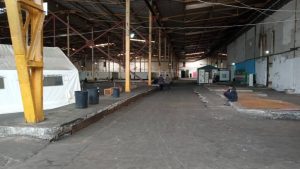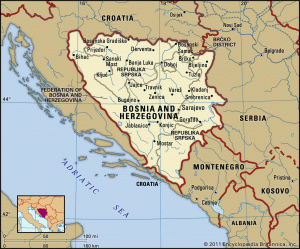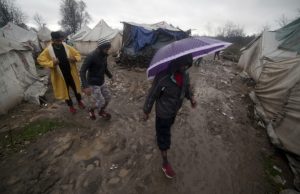Intolerance and destitution in Bosnia’s refugee camps
Arshid, a gay Iranian refugee, faces homophobia and destitute conditions in Bosnia’s Bira refugee camp. Nearly two years after fleeing Iran, he continues to hide his sexual identity.

By Bridget Stauss
In Bihac, Bosnia, hundreds of migrants shelter in the cold and desolate hangar-like refugee camp of Bira, hoping to soon cross into Croatia and the European Union. Arshid (whose name has been changed here for his safety) is a gay Iranian man who is awaiting a better life in the EU: one of acceptance, tolerance, and beauty.
“I’m just looking for a place where I can feel secure, where my life will be more beautiful,” he reflected.
He escaped LGBTQ-hostile Iran two years ago and continues to hide his identity in Bira. In his native Iran, homosexuality is punishable by the death penalty There Arshid studied physics and then managed a furniture store while saving money to leave. He encountered persistent intolerance and animosity towards his sexuality among his family and close friends.
He said to InfoMigrants, “For a long time, I hoped my family would accept me the way I am, but that day never came. I was tired of the deceptions, the lies. I decided to fight for what I want to be.”

After 11 months of traveling through Greece and Turkey, Arshid has been stuck in Bira for the last nine months. His hopes of leaving Bosnia have diminished in recent months as member nations of the European Union shut their borders during the COVID-19 crisis.
Conditions in the already-desolate camp have worsened since the onset of the pandemic; refugees in Bira have not been allowed to leave the camp for the last two-and-a-half months and are wholly dependent on the scarce food and supplies brought to the camp by volunteers. Refugees like Arshid sleep in crowded dormitories made from large metal containers in the hangar; social distancing is nearly impossible.
Individuals who seek to leave the camp must sign a form acknowledging they cannot return, and those who are caught illegally crossing the border into Croatia are sent to another camp in Lipa, where refugees lack access to running water, have no private space, and are not allowed outside.
Arshid also reported being beaten and harassed by Bosnian police. “The Bosnian police are on edge these days. They’re attacking us like the Croats do. A few weeks ago, they searched the camp. I don’t know what they were looking for. We all had to get out of our containers. It took me a little longer to get out, so they came looking for me. I got beaten up; they didn’t even give me time to explain.”
In Bira, Arshid is still not able to express his sexuality. He knows coming out would only further risk his safety and his relationships with those around him. Although Bosnia hosted its first Pride parade in September 2019, violence against LGBTQ+ individuals (including non-citizens and migrants) persists. Arshid hopes to make it to France, Italy, Germany, or any other country where he can identify openly and safely as gay.

Bosnia’s refugee camps faced widespread international criticism in November and December of 2019 for their harsh wintertime conditions and the lack of adequate food, water, medicine, and shelter provided to migrants. In Vucjak, refugees in dilapidated tents sleep on the ground and receive one meal per day from Red Cross volunteers. The camp was built on a chemical dumping ground and is surrounded by landmines.
In other cities, hundreds of starving refugees wait to be admitted to camps and sleep on the ground in sub-freezing temperatures. The European Union gave Bosnia €10 million in 2019 to build new centers for migrants and refugees, but Bosnia’s government has not yet done so. Instead, local governments prevent migrants from entering their provinces and leave men, women, and children on the side of the road in the cold.
Conditions in Bosnia’s refugee camps have worsened since the outbreak of Covid-19.
You can watch the 2019 BBC report on Bosnia’s refugee crisis here:
Bridget Stauss, the author of this article, studies history and international relations at Amherst College in the United States.
Related articles about LGBTQ refugees in …
Kenya:
- LGBT refugees coalition condemns Kenya violence (
- Don’t abandon us, LGBTQI refugees say (
- Gay refugees escape Kakuma’s dangers, reach Nairobi’s squalor (
The U.K.:
South Africa:
- S. Africa rejects Zambia refugee for saying he’s both gay and Christian (
Malawi:
United States:
Archives:
- This blog’s articles about refugees.
- This blog’s articles about asylum-seekers.




